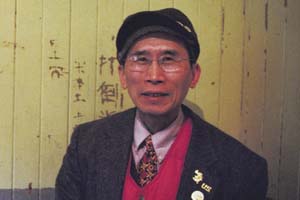Haunting the barrack walls on Angel Island are more than 200 poems, etched into thin sheets of lead paint. I pause, notebook in hand, to observe a man in his early 60’s as he traces the carvings with his fingers.
He introduces himself as Walter W. Ko, and hands me his latest publication, a book review of Angel Island by Branwell Fanning and William Wong. I ask him to translate a poem hidden in the corner of the room, and he hunches over to scan the engravings.
“Seeking … rice,” he says, then corrects himself: “no — America.” Ironically, the symbol used to write “America” during immigration to Angel Island is the same icon employed for “rice” in ancient Chinese characters.
Ko describes the hopeful sentiment in the verse, which is accompanied by frustration and bitterness towards the immigration procedures. He walks me through the crowded room, bringing untold tales to life. Most of the poems are written in Chinese, though there exist a couple of Japanese notes from World War II.
The content of the Chinese poetry is varied. Some verses brightly anticipate the future, while other express boredom, homesickness and anger. And there are more secrets.
Veiled in dust and faded with time, other types of etchings reside on these telltale walls. We find a militant political slogan, endorsing a commander during the late-Qing dynasty. In other areas, there are pictures and designs open for interpretation.
Ko shakes my hand and hoists his briefcase. Before vanishing in the blur of immigrant’s children and curious visitors, he pauses to murmur, “There is a lot of history here,” and he heads for the door.
For more information on visiting Angel Island, go to aiisf.org

